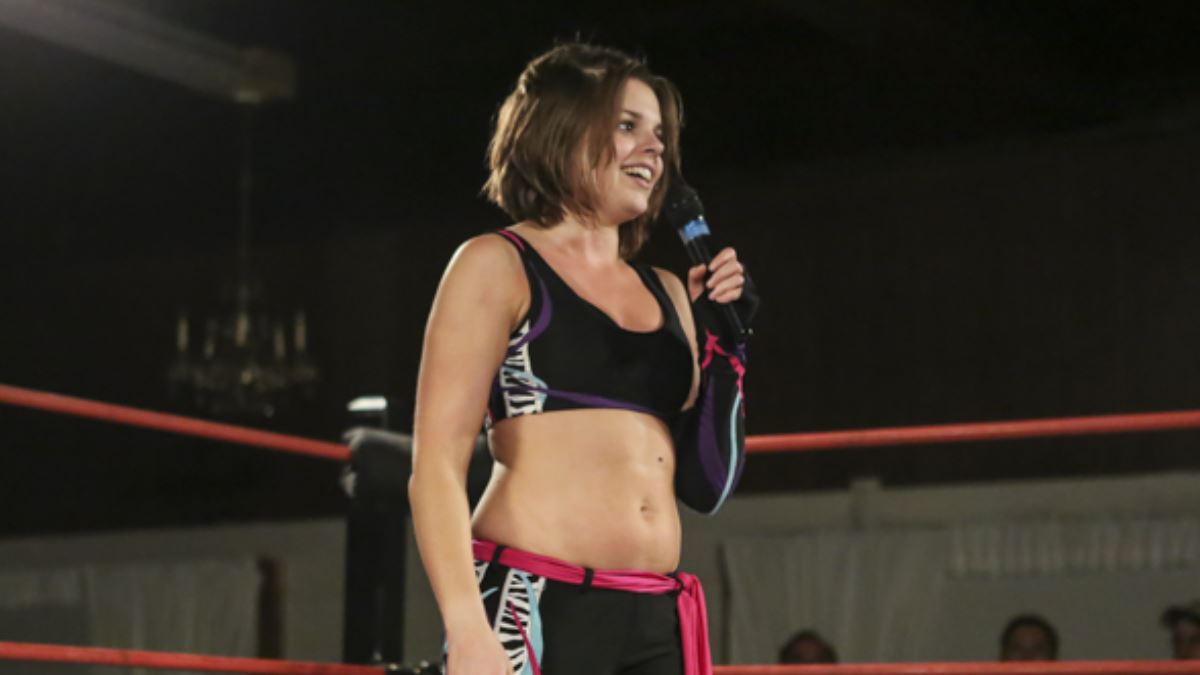As men and women throughout the wrestling industry began sharing accounts of alleged abuse through the “Speaking Out” hashtag, Portia Perez took action.
Mere days into what has become a movement, the former SHIMMER tag team champion offered to re-do commentary that had been “ruined by misogynistic or sexualized commentary.”
#SpeakingOut pic.twitter.com/w1Ct9NpanX
— Portia Perez (@pperezninja) June 22, 2020
Perez, who retired from in-ring competition in 2015, said that in her experience, “degrading commentary was rampant,” and offering commentary services to wrestlers was her way doing “something small” to help victims.
“You can’t present people this way,” Perez said. “It think dismantling this system is really important, too.”
Once she made her offer public, other industry commentators like EVOLVE’s Lenny Leonard and Ring of Honor’s Ian Riccaboni joined the cause. Since first posting her offer on Twitter on June 21, more than 30 commentators have come on board – at no cost to the wrestlers requesting new commentary tracks.
“It’s great because I think that’s the sort of unity [and] show of support we need to make real change in wrestling,” Perez said.
Leonard, who has been a commentator for 17 years, said he felt “a ton of different emotions” as stories began to emerge under the hashtag. So when he saw Perez’s commentary offer, he said it was a “no-brainer” to offer his services.
But the day after he threw his name in the ring, he began to reflect on his own commentary career, and realized he had been guilty of some of the issues Perez was trying to fix.
When adult film star Trina Michaels was involved with EVOLVE, Leonard said, he “pushed the envelope” with what he said on the mic.
“She knew that we had pushed the boundary commentary wise,” Leonard said, “but it’s one of those things you look back on and just cringe.”
Commentary, he said, can “help push [women] down,” when they should be taken seriously as performers.
“You have ability to make or break how people perceive these women with how you conduct yourself [during the] course of their match,” Leonard said. “If you treat them like serious, competent athletes… they’re going to be taken that way.”
Or, if they are treated like a punchline – how he said he treated Michaels – that’s how they will be perceived.
Lenny Leonard.
Going forward, Leonard said, being mindful of what’s being said on commentary will need to become commonplace.
“We’re going to have to keep it in the back of our mind,” he said. “I hope that no companies try to use this as an angle or use it as a way to book shows, I think that would really diminish what these women are saying.”
And beyond women’s wrestling, Leonard said he hopes to see people of all backgrounds, sexual orientation and beyond “get their deserved equal rights and standing.”
“I hope that the sport and the business itself follows that trend and really allows the folks to practice their art in the way that they see fit and present in a manner that is befitting their character,” Leonard said.
And in addition to wrestlers trusting each other in the ring, Perez said that concept extends to “trusting commentators to present you in a way you want to be presented.”
“You have the right to expect to respect from everyone,” she said.
Perez, who retired as a wrestler in October 2015, also said she hopes that those involved in commentary consider that the athletes in the ring are working hard to get to where they are, and commentary is intended to support those efforts.
“[You’re] not there to get your own character over or make your buddies laugh… if you can’t do that with respect, I think maybe you need to re-evaluate,” Perez said.
At least six promotions and a few wrestlers have contacted her about the offer.
(Featured image photo by Ricky Havlik, RickyHavlik.com)
RELATED LINK

